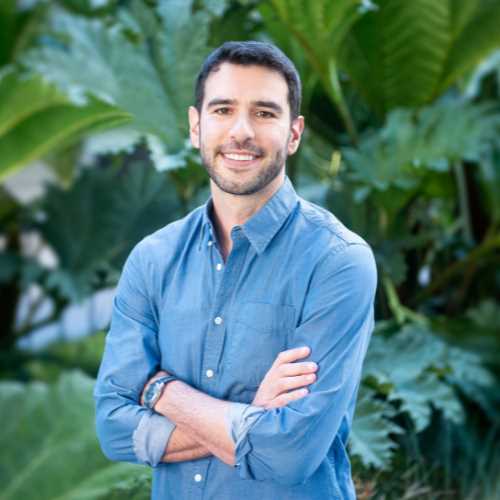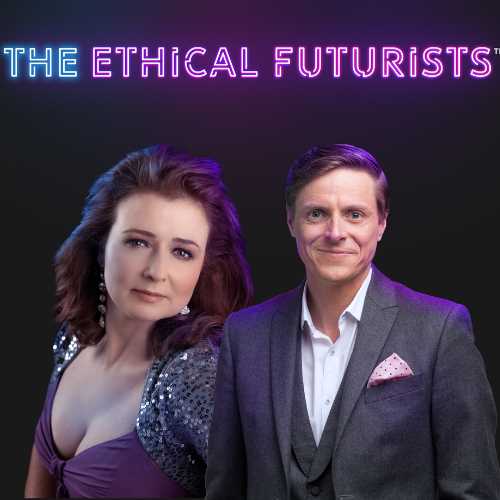
Increasing emissions, increasing global temperatures, and increasing costs are proof of how inextricably linked human behavior is with the economy and the natural world around us. The term sustainability can be defined in numerous ways, most notably as “the intergenerational ethics in which the environmental and economic actions taken by present persons do not diminish the opportunities of future persons to enjoy similar levels of wealth, utility, or welfare.”
Sustainable practices in the business world are widely implemented through daily consumption tracking, goal-setting, and regulatory compliance. No industry is exempt from the tedium of these crucial tasks. However, artificial intelligence (AI) has emerged as a tool to aid in these efforts.
Recently, we have seen AI take over the more monotonous (yet imperative) task by efficiently analyzing data and forecasting trends in emissions, climate planning, and waste management, as well as tracking extreme weather patterns, biodiversity loss and more. Beyond chatbots like ChatGPT, AI applications could be implemented in almost every industry to optimize complicated and time-consuming processes to produce immediate results. Currently, technology experts and governments all over the world are collaborating on how AI could help offset environmental damage immediately and find climate solutions in the near future.
But, there are pros and cons to this technology. While machine learning shows great promise for inconceivable processing power, running these AI models is incredibly energy intensive, often even more than the Cloud — a notorious culprit in energy consumption. As a result, AI data centers are releasing excess carbon, using valuable land area, and consuming considerable amounts of fresh water to cool down.
So, what can AI developers and businesses do to minimize these environmental impacts while simultaneously propelling the use of AI in the sustainable space? Let’s hear from the experts.
 Adam Braun and the Climate Club
Adam Braun and the Climate Club
Founder and CEO of the Climate Club, Adam Braun, is well regarded for his boots-on-the-ground work in education and environmental stewardship. Within the Climate Club, Braun created sustainability software that businesses can implement to monitor emissions, decrease costs, and directly engage individuals at participating companies to seek out low-carbon habits.
Introducing this software to companies means that rather than relying on purchasing clean energy and buying offsets, organizations introduce people-powered carbon offsetting that engages every employee in the journey to net zero. Using the Climate Club software, corporations can maximize profits, track emissions within the most intensive subcategories of business like travel, and distribute sustainability goals amongst members of the team.
Braun’s people-first mentality is an excellent example of how AI should be tailored to maximize sustainability efforts.
 Scott Amyx and Smart Cities
Scott Amyx and Smart Cities
Scott Amyx, Managing Partner of Astor Perkins, is a deep tech and sustainability venture capitalist who is actively working to increase energy efficiency using AI and meet overall sustainability goals through the creation of smart cities. Smart cities use automation, data collection from sensors, and internet connection to continuously monitor and report suboptimal conditions of regular city infrastructure and community conditions. Amyx believes these are the future of sustainability.
He welcomes disruption and fast-paced tech innovations, like smart cities, and encourages others not to be fearful of AI. He believes it will improve overall quality of life through energy efficiency, smart transportation, and increased public safety. His keynotes address and debunk the key concerns with the rise of automation—like data security and privacy—to inspire leaders in this space to put the human experience first and utilize AI as a complement to daily life. Amyx says that by prioritizing thoughtful regulation for AI implementation, we could eliminate many of the risks associated with rapid automation and create a new, smarter future.
 Nikolas Badminton
Nikolas Badminton
Similarly to Amyx, Nikolas Badminton, has spent over 30 years working with international leadership teams on resiliency, future planning and technology consulting. As an esteemed futurist, Badminton’s keynotes emphasize investing in future planning to achieve a profitable triple bottom line - people, planet, and profit. In 2030 and beyond, Badminton predicts that technologies using AI such as automation, robots, data analytics, IoT, and the sensor economy will be pivotal to sustaining our demands for water, energy, and agriculture. Humans will be able to customize machine learning to reflect significant ethical and cultural subtleties to offer solutions and practical strategies for the most vulnerable communities.
 James Taylor and Alison Burns, The Ethical Futurists
James Taylor and Alison Burns, The Ethical Futurists
Dynamic duo, Alison Burns and James Taylor combine their two unique perspectives to share their insights as the Ethical Futurists. Burns provides case studies on ethics, sustainability and ESG governance, while Taylor focuses on the creativity, future trends and innovative side of business development. Their message highlights how human creativity is the most vital tool facing disruption in the future of work and prosperity.
It is important to think of AI technology, like chatGPT, as a co-collaborator rather than just as a tool. Because AI cannot replicate human creativity it is imperative to work with machines to design and generate new ideas to keep innovation and profits high. Taylor and Burns encourage audiences to consider the ethics of AI, robotics, and cybersecurity, and ask themselves as leaders of their industry, what does it mean to create an ethical, sustainable future?
Ultimately, our keynote speakers believe AI can be used as a tool for good. With AI developers assessing and centering results around community impacts during AI design, there is great potential for beneficial environmental impact. As long as we uphold our responsibility to enforce clear AI regulations and keep good intentions at the forefront when training AI models, the future looks bright.
Within the last several years, sustainability efforts have positively highlighted the importance of collaboration and conservation of natural resources to result in a mutually beneficial and thriving economic future. The continuous development of “sustainable AI” opens the door for new, sophisticated functionality that we have not seen in decades. Bring one of our expert keynote speakers; Adam Braun, Scott Amyx, Nikolas Badminton, and The Ethical Futurists, to weigh in on this nuanced topic and explore how the positives of ubiquitous AI adoption can potentially mitigate the negative environmental impacts.
Recent Posts








Sign up for our Email Newsletter
Testimonials

Need Suggestions? Have Questions?
Call to discuss how we can you help find the right speaker(s) for your organization.
© 2025 Executive Speakers Bureau. All Rights Reserved.
Design and Developed by eBiz Solutions
Get Ideas in 1 hour or less
Executive Speakers Bureau consistently receives praises about our speed and efficiency. From the beginning of your event planning, our extensive online speaker database and resourceful staff allow us to quickly equip you with the best speaker for your event.
Need a last minute speaker? No worries. Our speed and efficiency help us give you ideas for speakers in one hour or less.

 Kaitie Choo
Kaitie Choo












Comments
Leave a Comment